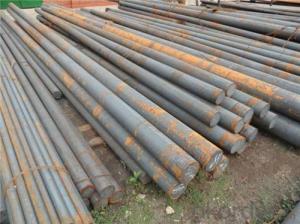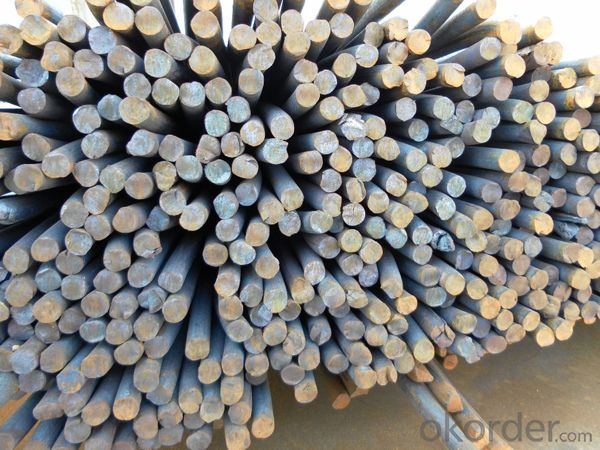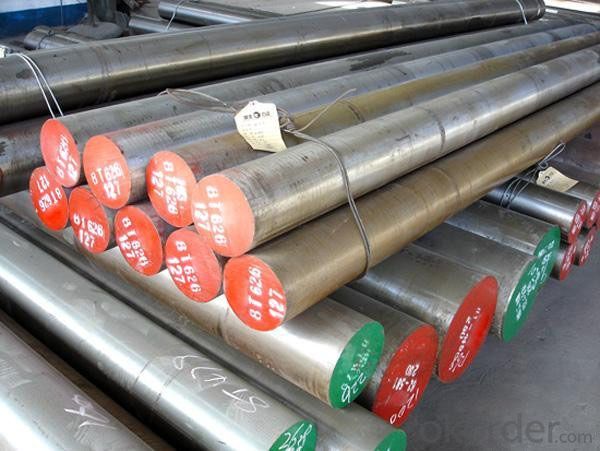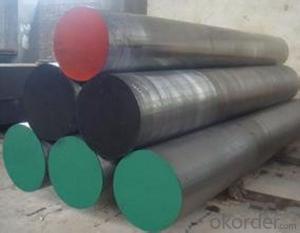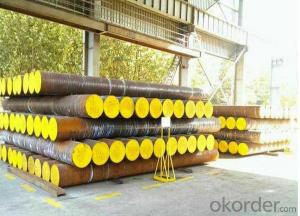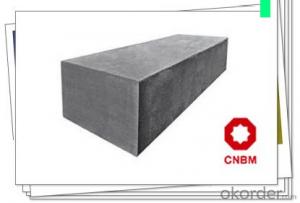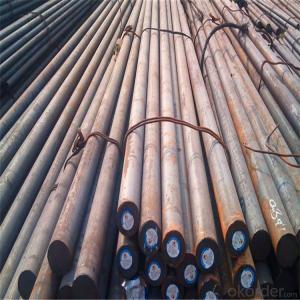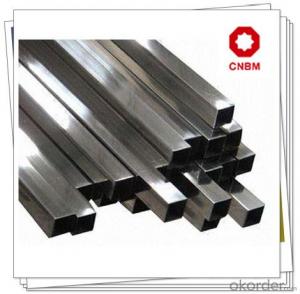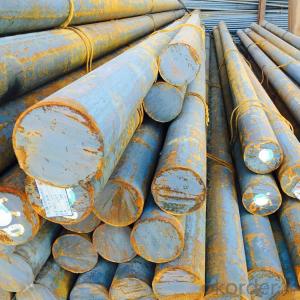Special Steel SCM420H Steel Bar Structural Steel
- Loading Port:
- China main port
- Payment Terms:
- TT OR LC
- Min Order Qty:
- 30 m.t.
- Supply Capability:
- 10000 m.t./month
OKorder Service Pledge
OKorder Financial Service
You Might Also Like
Specification
Product Information
1 Standards and Chemical Composition:
GB | DIN | JIS | BS |
20CrMo | 25CrMo4 | SCM420 | 25CrMo4 |
C | Si | Mn | P | S | Cr | Ni | Cu |
0.17-0.23 | 0.15-0.35 | 0.55-0.90 | 0.030 | 0.030 | 0.85-1.25 | 0.30 | 0.30 |
2 Mechanical Property:
Yield Strength (MPa) | ≥685 |
Tensile Strength (MPa) | ≥885 |
Elongation (%) | ≥12 |
Hardness (HB) | ≤197 |
Reduction in Area (%) | ≥50 |
AKV (J) | ≥78 |
3 Brief Introduction:
Dimension | 14-350mm |
Length | 2-13m or as per your request |
Delivery condition | Hot rolled |
Heat Treatment | Normalizing, Annealing, Quenching |
Packing | Standard seaworthy packing or according to your requirements |
Product Show
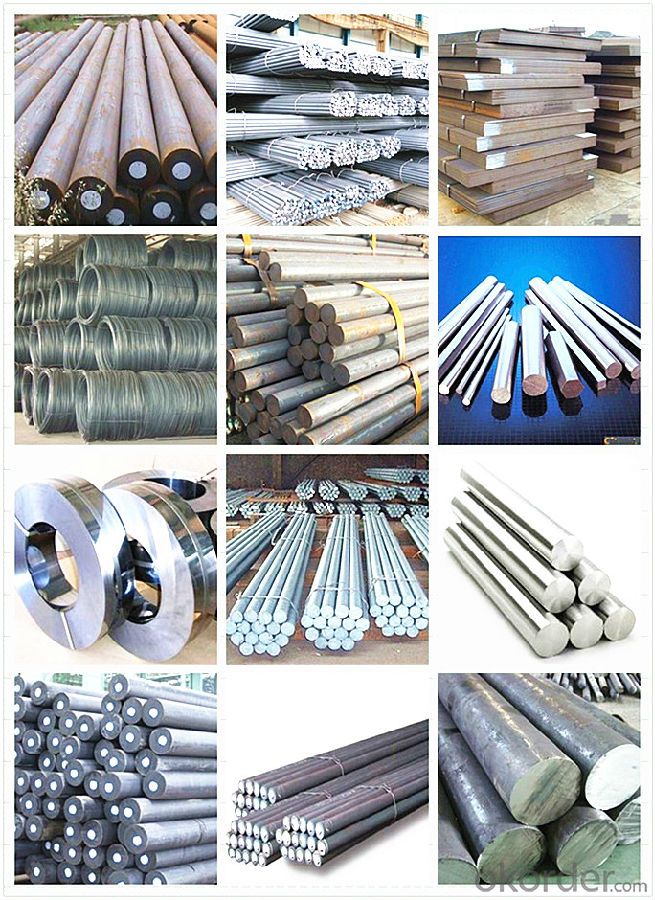
Workshop Show
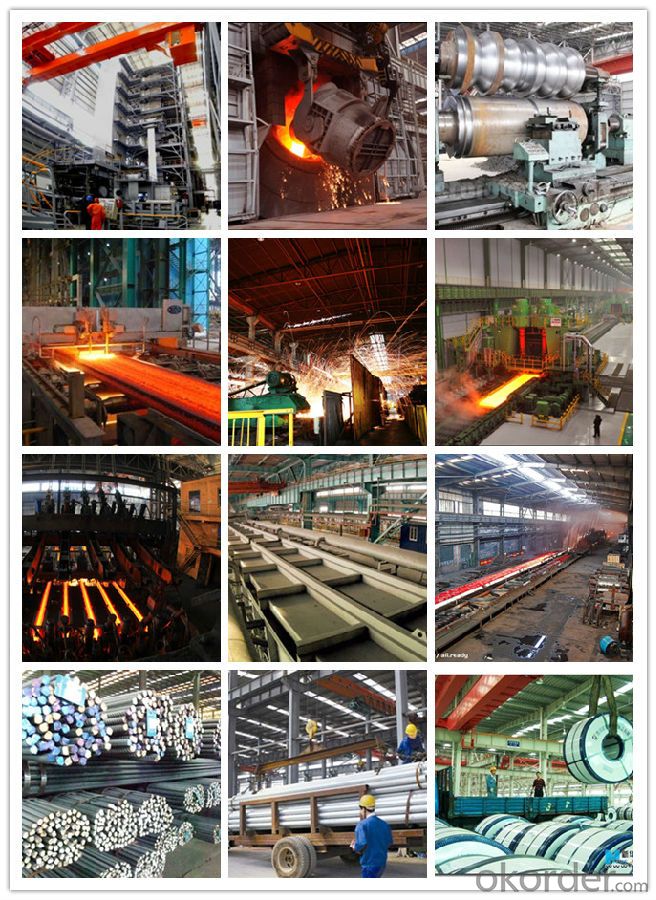
Shipping
1. FedEx/DHL/UPS/TNT for samples, Door-to-Door;
2. By Air or by Sea for batch goods, for FCL; Airport/ Port receiving;
3. Customers specifying freight forwarders or negotiable shipping methods!
Delivery Time: 3-7 days for samples; 5-25 days for batch goods.
Payment Terms
1.Payment: T/T, L/C, Western Union, MoneyGram,PayPal; 30% deposits; 70% balance before delivery.
2.MOQ: 1pcs
3.Warranty : 3 years
4.Package Informations: 1) EXPORT, In 20 feet (GW 25 ton) or 40 feet Container (GW 25 ton)
2)as customer's requirement
Why choose us?
(1) The leading exporter in China special steel industry.
(2) Large stocks for various sizes, fast delivery date.
(3) Good business relationship with China famous factories.
(4) More than 7 years steel exporting experience.
(5) Good after-sales service guarantee.
- Q: What are the specific requirements for special steel used in the mining industry?
- Special steel used in the mining industry has specific requirements to ensure its durability, strength, and resistance to harsh conditions. Some of the key requirements for special steel used in the mining industry include: 1. High strength: Special steel used in the mining industry must have high tensile strength to withstand heavy loads and resist deformation under extreme conditions. This enables the steel to endure the pressure, impact, and stress that it may encounter during mining operations. 2. Wear resistance: Mining environments involve abrasive materials, such as rocks and ores, which can cause significant wear on equipment. Special steel used in the mining industry needs to have excellent wear resistance to prevent premature failure and increase the lifespan of mining equipment. 3. Corrosion resistance: Mining operations often take place in highly corrosive environments, such as underground mines or near water bodies. Special steel used in the mining industry should possess high corrosion resistance to withstand exposure to chemicals, moisture, and other corrosive agents. This helps prevent rusting, pitting, and other forms of corrosion that can weaken the steel. 4. Toughness: Mining equipment is subjected to heavy impacts and vibrations, which can lead to fractures if the steel is not tough enough. Special steel used in the mining industry should exhibit excellent toughness, allowing it to absorb energy from impacts and vibrations without fracturing. This ensures the safety and reliability of mining equipment. 5. Heat resistance: Mining operations involve high-temperature environments, such as smelting and refining processes. Special steel used in the mining industry must have good heat resistance to withstand the elevated temperatures without losing its strength or undergoing deformation. 6. Machinability: Special steel used in the mining industry should also have good machinability, allowing it to be easily formed into complex shapes or structures. This facilitates the manufacturing process of mining equipment and components. Overall, the specific requirements for special steel used in the mining industry revolve around strength, wear resistance, corrosion resistance, toughness, heat resistance, and machinability. Meeting these requirements is crucial for ensuring the reliability, durability, and safety of mining equipment in the demanding mining environments.
- Q: How does special steel contribute to the heavy equipment industry?
- Special steel contributes to the heavy equipment industry by offering enhanced strength, durability, and resistance to wear and tear. It enables the production of high-performance components and parts, such as gears, axles, and blades, that can withstand heavy loads, extreme temperatures, and harsh environments. The use of special steel in heavy equipment ensures improved safety, increased productivity, and longer service life, making it a critical material for the industry.
- Q: How is special steel used in the manufacturing of cutting tools?
- Special steel is used in the manufacturing of cutting tools due to its exceptional properties such as high hardness, wear resistance, and toughness. This type of steel allows for the production of durable and efficient cutting tools that can withstand the high forces and temperatures involved in cutting operations. Additionally, special steel can be heat-treated to further enhance its properties, making it ideal for creating sharp and long-lasting cutting edges.
- Q: How is special steel used in the aerospace manufacturing process?
- Special steel is used in the aerospace manufacturing process for various applications, such as producing critical components like landing gear, turbine blades, and engine parts. The high strength, durability, and resistance to corrosion make special steel an ideal material for these aerospace components, ensuring the safety, reliability, and performance of the aircraft.
- Q: What are the main applications of special steel in the chemical processing industry?
- Special steel has various applications in the chemical processing industry, primarily due to its excellent corrosion resistance, high temperature resistance, and strength. It is commonly used in the construction of chemical storage tanks, pipes, and reactors, where it helps to prevent leaks and maintain the integrity of the process. Additionally, special steel is utilized in the manufacturing of valves, pumps, and heat exchangers, ensuring reliable and efficient operations in chemical plants.
- Q: What are the properties of magnesium alloys?
- Magnesium alloys possess several important properties. They have a low density, making them lightweight and ideal for applications where weight reduction is crucial. They exhibit high strength-to-weight ratio, which makes them strong and durable. Magnesium alloys also have good heat dissipation properties, making them suitable for applications that require efficient cooling. They have excellent corrosion resistance, particularly when properly coated or treated. Additionally, magnesium alloys demonstrate good machinability and can be easily formed into various shapes and components.
- Q: What are the mechanical properties of special steel?
- Special steels, also known as alloy steels, possess enhanced mechanical properties compared to regular carbon steels. These properties vary depending on the specific alloying elements and their concentration. Some common mechanical properties of special steel include: 1. High tensile strength: Special steels are known for their exceptional strength, making them suitable for applications that require high load-bearing capacity. The tensile strength of these steels can range from 500 MPa to over 2,000 MPa, depending on the composition. 2. Improved hardness: Alloying elements in special steels can significantly increase their hardness. This property is desirable for applications that require resistance to wear and abrasion. Special steels can achieve hardness levels ranging from 200-600 HB (Brinell hardness), depending on the specific alloy composition and heat treatment. 3. Good toughness: Special steels often exhibit good toughness, which refers to the ability to absorb energy before fracturing. This property is crucial for components subjected to impact or dynamic loading. The combination of high strength and toughness makes special steels suitable for demanding applications such as automotive parts or industrial machinery. 4. Excellent fatigue resistance: Special steels are designed to withstand cyclic loading without failure. They exhibit enhanced fatigue resistance, allowing them to endure repeated stress cycles without compromising their structural integrity. This property makes special steels ideal for critical components in aerospace, automotive, and machinery industries. 5. Superior corrosion resistance: Depending on the alloy composition, special steels can offer improved corrosion resistance compared to regular carbon steels. The addition of elements like chromium, nickel, or molybdenum helps to form protective oxide layers on the surface, preventing corrosion and increasing durability. 6. High temperature resistance: Some special steels are specifically formulated to perform well at elevated temperatures. They possess excellent heat resistance and can retain their mechanical properties even at extreme temperatures. This property is crucial for applications such as turbine blades, exhaust systems, or high-temperature furnaces. It is important to note that the specific mechanical properties of special steel can vary widely depending on the specific alloy composition, heat treatment, and processing techniques used. Therefore, it is essential to consult the material specifications or consult with experts to determine the exact mechanical properties of a particular special steel.
- Q: What are the properties of electrical steel?
- Electrical steel, also known as silicon steel, possesses specific properties that make it ideal for use in electrical equipment. It exhibits low core loss, high permeability, and high magnetic saturation, enabling efficient energy conversion and minimizing power losses. Additionally, electrical steel has a high resistivity, reducing eddy currents and further improving its performance in transformers, motors, and generators.
- Q: What are the different methods for improving the wear resistance of special steel?
- There are several methods that can be employed to enhance the wear resistance of special steel. These methods include: 1. Alloying: By adding specific alloying elements to the steel composition, such as chromium, vanadium, or molybdenum, the wear resistance can be significantly improved. These alloying elements form carbides within the steel matrix, which increase hardness and provide resistance against wear. 2. Heat treatment: Special steels can undergo various heat treatment processes, such as quenching and tempering, to enhance their wear resistance. Quenching involves rapidly cooling the steel from high temperatures to increase hardness, while tempering is performed to relieve internal stresses and improve toughness. 3. Surface coatings: Applying specialized coatings on the surface of the steel can greatly improve wear resistance. Common coating methods include thermal spray coating, electroplating, and physical vapor deposition. These coatings create a protective layer that resists wear and reduces friction. 4. Shot peening: This mechanical surface treatment involves bombarding the steel surface with small spherical particles, called shot, at high velocities. The impact of the shot induces compressive stress on the surface, which enhances the material's resistance to wear and fatigue. 5. Nitriding: This process involves diffusing nitrogen into the surface of the steel at elevated temperatures. Nitrogen forms nitrides, which significantly increase surface hardness and wear resistance. 6. Cryogenic treatment: By subjecting the steel to extremely low temperatures, typically below -100 degrees Celsius (-148 degrees Fahrenheit), the material undergoes a structural transformation that increases its wear resistance. This process helps to refine the grain structure and improve the material's toughness. 7. Grain refinement: By employing methods like severe plastic deformation or specialized casting techniques, the grain size of the steel can be reduced. Smaller grain sizes result in increased hardness and wear resistance due to improved dislocation movement and reduced grain-boundary sliding. It is important to note that the choice of method for improving wear resistance depends on factors such as the specific application, budget, and desired level of improvement. A combination of these methods may also be utilized to achieve optimal wear resistance in special steel.
- Q: What are the requirements for special steel used in defense equipment manufacturing?
- The requirements for special steel used in defense equipment manufacturing typically include high strength and durability, resistance to corrosion and wear, good toughness and impact resistance, as well as the ability to withstand extreme temperatures and harsh environments. Additionally, the steel must meet stringent quality control standards and industry specifications to ensure its reliability and performance in critical defense applications.
Send your message to us
Special Steel SCM420H Steel Bar Structural Steel
- Loading Port:
- China main port
- Payment Terms:
- TT OR LC
- Min Order Qty:
- 30 m.t.
- Supply Capability:
- 10000 m.t./month
OKorder Service Pledge
OKorder Financial Service
Similar products
Hot products
Hot Searches
Related keywords
